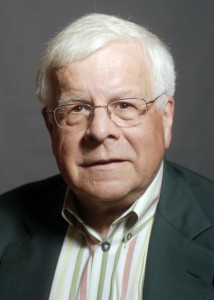Trump’s promise to bring jobs back home hits Michigan where it vacations
A longtime Harbor Springs business owner unexpectedly found himself in the middle of the national immigration and guest-worker debate, to the point he has shut down his business temporarily for the summer season, if not for good.
Gow Litzenburger, 51, owner of Litzenburger Landscape, made his local weekly’s front page recently, shortly after word spread across the northern Michigan resort town.
After continued delays in the U.S. Department of Labor’s backlogged seasonal worker H-2B visa program, he’s not opening for the first time in 31 years. Some 30 of his 60 seasonal employees are Mexican and unable to get the temporary work visa required to work in the U.S.
“I’m totally flattened,” Litzenburger says. “I really had no choice. It has just blown my mind.”
Having mown lawns since childhood, Litzenburger started his business shortly after graduating from Michigan State University’s two-year landscaping program in 1985, and has grown it into one of the area’s leading landscape businesses. His well-kept fleet of green-and-white trucks have traveled through the Up North countryside for decades.
But Litzenburger Landscape, like others across the country, depends on the small U.S. Department of Labor H-2B visa program to survive. Besides landscaping, it is used in the forestry, amusement, tourism and construction industries, and is a key conduit for seasonal businesses to fill jobs they say Americans typically don’t want, reports the Wall Street Journal.
This year Litzenburger hit a wall. The visa process, which normally takes seven days, had grown to past 78 days, with still no permits and beyond his time to effectively start work.
Sympathetic customers have have offered suggestions and advice, including hiring college students. Unfortunately, Litzenburger says students are not available early enough and don’t have the 10 years of experience and knowledge most of his workers had to do the job.
He’s not alone. Some employers on Mackinac Island are now having trouble finding enough workers to staff for the tourist season. Others are not.
The Grand Hotel requires nearly 700 employees to maintain its day-to-day operations during the peak season. The hotel’s president, R. Daniel Musser III, testified before Congress in 2008, when the issue was emerging for his and similar businesses. He asked for improvements in the regulations governing foreign seasonal workers, arguing, like Litzenburger, that they were essential for Grand Hotel staffing through a typical May-to-October season.
But the Grand Hotel was one of the fortunate businesses escaping the problem as it readies itself to open for its 130th summer season.
Musser, like his late father, R.D. Musser Jr., hires some 650 workers seasonally at the hotel, owned and operated by his family for more than 80 years. The process has become a complex issue for him and many others in the resort business. There simply aren’t enough students and locals to fill all the jobs, from maintaining golf courses to staffing the kitchen and marina.
“I feel really bad for Gow,” said Musser, who has been a family friend for years. “It has become more difficult, and with (Donald) Trump and others being so disparaging about the program.... He made a difficult decision, but one also has to sleep at night.
“We (likely) will get all the visas we need this season,” Musser said. “More hoops to jump through and higher costs, but worth the effort.”
“We would much prefer to fill these positions with domestic staff, and more specifically staff from Michigan, but we find that distance from a major metropolitan area and the seasonal nature of the jobs is not attractive,” he said. “Even in the height of the economic downturn, we did not see a greater willingness in applicants being willing to relocate to Mackinac Island for the summer season.”
The H-2B visa is designed to fill temporary labor shortages because of seasonal, peak-load, one-time or intermittent need. The Grand Hotel hires visa holders for food preparation, dishwashing, dining room, cafeteria and bar jobs.
Help Wanted signs and classified advertising are now popping up across northern Michigan, as the snow melts and seasonal operations open for summer. Many last summer had difficulties finding help, forcing them to shorten business operating hours and in some cases, like restaurants, opening only for dinner hours.
Americans just don’t want to do the dirty work required to fuel the U.S. economy, particularly in northern Michigan and other resort communities across the country. The politicians, particularly some of those running for president, don’t get it.
See what new members are saying about why they donated to Bridge Michigan:
- “In order for this information to be accurate and unbiased it must be underwritten by its readers, not by special interests.” - Larry S.
- “Not many other media sources report on the topics Bridge does.” - Susan B.
- “Your journalism is outstanding and rare these days.” - Mark S.
If you want to ensure the future of nonpartisan, nonprofit Michigan journalism, please become a member today. You, too, will be asked why you donated and maybe we'll feature your quote next time!


 Ken Winter, former editor and publisher of the Petoskey News-Review and member of the Michigan Journalism Hall of Fame, teaches political science and journalism at North Central Michigan College in Petoskey and Michigan State University.
Ken Winter, former editor and publisher of the Petoskey News-Review and member of the Michigan Journalism Hall of Fame, teaches political science and journalism at North Central Michigan College in Petoskey and Michigan State University.